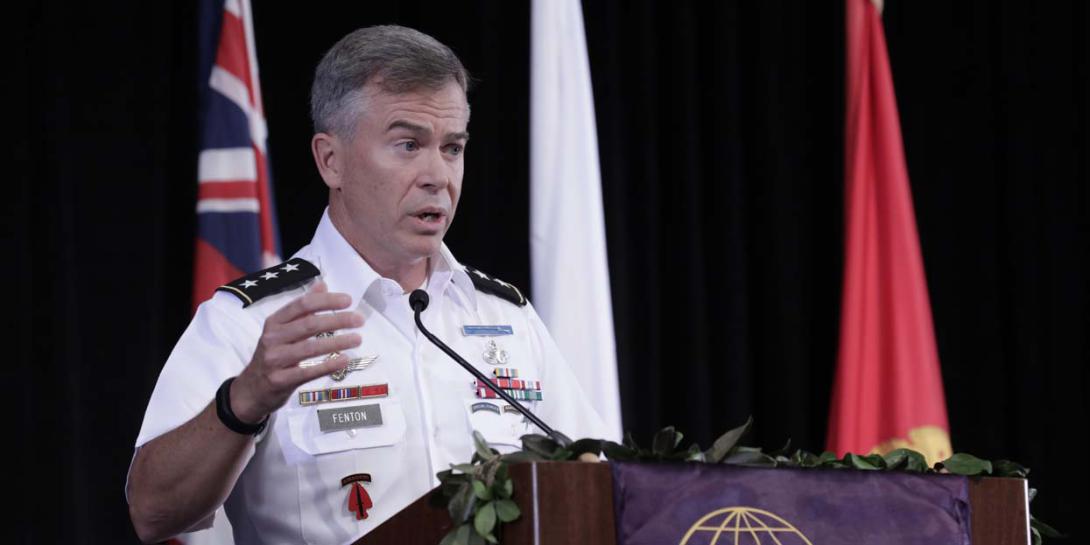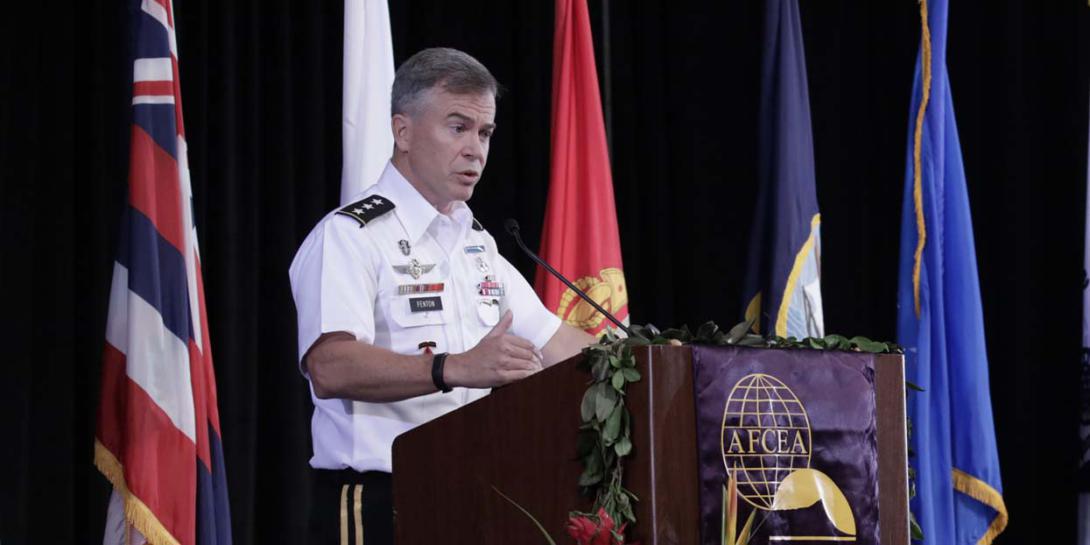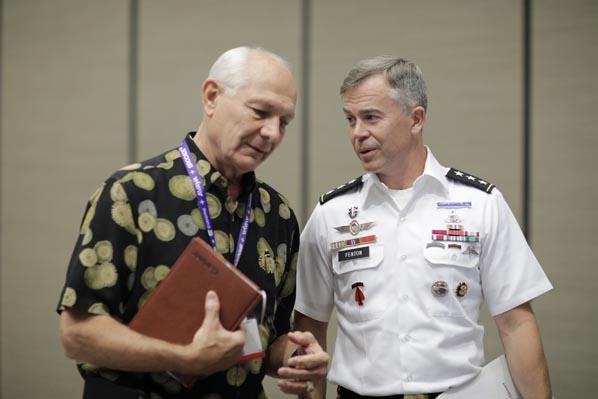Ride Wave of Consequence With PACOM
In the surfing community, a wave of consequence is one that is impactful and takes a commitment to get in to it. “But when you put that commitment into the wave, it makes a difference,” said Lt. Gen. Bryan P. Fenton, USA, deputy commander, U.S. Pacific Command, who explained that he needs strong industry partnerships to help make a difference.
He said knowing what industry and other entities have “gives us options for better resiliency.” Partnering with industry, academia and other innovators is essential. Working with allies and other partners in the Indo-Asia region is also important. Speaking at AFCEA TechNet Asia-Pacific, the general challenged the audience to take the opportunities presented at the event to make it a conference of consequence as well.
The region the Pacific Command covers is vast in nearly every way, including economic, cultural, social, geographic, language and geopolitical diversity. The command has more than 375,000 personnel, including Army, Navy, Air Force, Marines, Coast Guard and DOD civilians who stand watch over half of the Earth.
The region also includes three of the largest economies and seven out of eight of the fastest growing economies. It also is home to seven of the 10 largest militaries, so this area shapes and contributes to global security in significant ways. Yet despite the diversity and military power, the region has experienced decades of relative peace and stability and prosperity unequaled in history, supporting over seven decades of U.S military presences and military alliances and partnerships.
Gen. Fenton outlined the three challenges that he sees the Pacific Command facing currently. First is North Korea, followed by ISIS, with geographic volatility being third.
In only six years, Kim Jong-un has tested more missiles than his father and grandfather combined, and more this year than years previous, the general said, emphasizing that North Korea is evolving as a great security threat to the United States, our allies and the rest of the world.
“Diplomacy and economic pressure are the best path to success, “ stated Gen. Fenton, but military options are the backup to that. “We need to do everything possible to reach a peaceful solution, including pressure on China as a stake holder. No nation or entity gets a pass from us,” he emphasized.
ISIS terrorism is increasing in Asia, Bangladesh and the Philippines, and “this is a threat that must be defeated,” he said. “We know that the displaced terrorist will seek other places to go. And their leaders have told them that if they cannot fight in the Middle East, come to Southeast Asia and fight in the Pacific.”
“Marawi is a wake up call for Pacific,” the general warned, talking about a city in the Philippines recently recaptured from ISIS. Foreign fighters are passing ideology, resources and methods to the region, and they must be stopped on the front end.
The third challenge Gen. Fenton discussed was the geographic volatility of the region, which has experienced 90 percent of all earthquakes and is home to 75 percent of the world’s volcanoes. While this is not a primary mission, he describes it as a key focus. “Our desire is to build the capabilities of allies and partners, so this is important to Adm. Harris and Pacific Command Team."
Beyond the challenges, partnerships play a vital role, from maintaining peace and security to helping with disasters or terrorist incidents, Gen. Fenton said. “We need partnerships with a purpose.”
Multilateral partnerships act as force multipliers for the good of the world. “So we look for opportunities to work together on collaboration to support cyber security, mission assurance and resiliency," he said.
Equally important to the command is the domain of space, crowed and competitive and subject to attack, he noted.
Mission assurance and resiliency for information systems that provide the availability and confidentiality for mission success are important as well. The world is interconnected and interdependent in ways unimaginable years ago,” Gen. Fenton said.







Comments